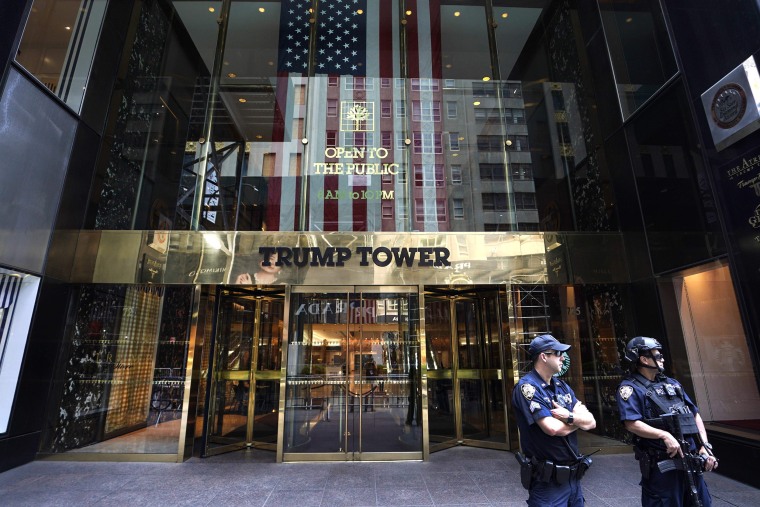When it comes to keeping Donald Trump's financial records hidden, it's hard not to notice the pattern: the president's lawyers keep fighting in court, and they keep losing. This morning offered the latest in a series of setbacks.
A federal judge on Thursday denied President Donald Trump's latest attempt to quash a probe by New York prosecutors seeking his tax returns and other financial documents. The ruling by U.S. District Judge Victor Marrero amounted to a second loss in Trump's high-stakes court battle with Manhattan District Attorney Cy Vance.
For those who may need a refresher, when the New York prosecutor's office initially sought Trump's hidden financial records, the Republican's lawyers came up with a novel reason to refuse: the president, they claimed, has "absolute immunity" from effectively every part of the U.S. legal process, leaving him free to ignore subpoenas and investigations.
As regular readers know, this argument was rejected by every court that heard it -- including the U.S. Supreme Court. Indeed, despite the high court's ideological divisions, all nine sitting justices agreed last month that Team Trump's "absolute immunity" claim was absurd.
But while that repudiation wasn't what the president hoped for, the Supreme Court's ruling in Trump v. Vance was only a partial setback: the justices sent the matter back to a lower court for further review, which offered Trump and his lawyers an opportunity to keep the process going.
With this in mind, the president's legal team continued to fight to keep the materials secret, insisting last month that the subpoena from the Manhattan district attorney's office is, among other things, too broad and intended as harassment. Today, the judge in the case rejected the argument in a 103-page ruling, which concluded that Team Trump's argument really hasn't evolved much.
"At its core, it amounts to absolute immunity through a back door, an entry point through which not only a President but also potentially other persons and entities, public and private, could effectively gain cover from judicial process," Marrero wrote.
Almost immediately thereafter, Trump's lawyers -- hired specifically to keep his secret financial records under wraps -- filed an emergency appeal.
It's almost as if there's something in the materials the president really doesn't want anyone to see.
Circling back to our earlier coverage, it's worth noting for context that when the Manhattan district attorney's office first subpoenaed Trump's accounting firm, Mazars USA, the general assumption was that Vance and his team were examining the president's hush-money scandal, which sent Trump's personal attorney, Michael Cohen, to prison.
A recent court filing, however, suggested prosecutors' interest in the Trump Organization is broader. Indeed, the district attorney's office, in defense of its subpoena, explicitly referenced the possibility of "extensive and protracted criminal conduct at the Trump Organization."
What might that conduct entail? There's no shortage of possibilities, though Jon Chait recently noted, "A New York Times investigation two years ago found a trail of phony records used in what the newspaper described as clear fraud. Trump has reportedly collected phony hurricane damages. ProPublica has uncovered massive discrepancies between the figures Trump has given to lenders and the government, portraying himself as rich to the banks and poor to the government, thus defrauding either one or both."
Of course, even if prosecutors in this case succeed in acquiring Trump's financial records, it doesn't mean we would get to see the documents the president has fought so hard to keep secret. Rather, the materials would be shared with a New York grand jury -- not with the public.
That said, as the New York Times recently added, "The records might only emerge later if criminal charges are brought and the records are introduced in a trial."
Watch this space.
Postscript: Time will tell whether the Manhattan district attorney's office will get the materials it subpoenaed from Trump's accounting firm, but let's not forget that Cy Vance and his team may have other avenues to the information.
The New York Times reported two weeks ago that the same prosecutors sought presidential documents from Deutsche Bank -- which loaned Trump $2 billion over the course of two decades -- and the bank "complied with the subpoena."

